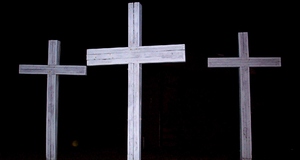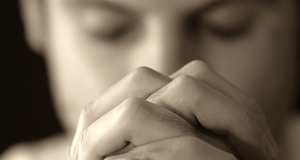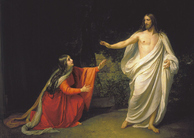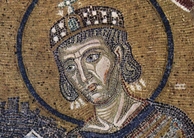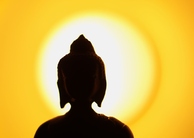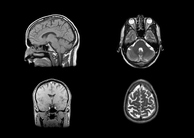Opinion:Is Paganism a Religion? Exploring the Historical and Contemporary Relevance of Paganism
By
2013, Vol. 5 No. 12 | pg. 2/2 | « Neopagan is the preferred term in academic circles, in order to differentiate between the paganism of the ancient world and modern Paganism. All religions seem to have both foundation stories – which almost always claim to be historical in order to propose a meaning for the religion – and actual histories. The foundation story of Wicca has grown up around Gardner's claim that in the late 1930s he was initiated into one of the very last of the English covens, and that he later built upon its system of worship and magic to create the Gardnerian system that has formed the basis for almost all of modern Witchcraft.18 Neopaganism as a religious concept is based on a desire to recreate the Pagan religions of antiquity, usually not as they actually were, but as they have been idealized by romantics since the Renaissance. The gap between ancient reality and modern reconstruction is exhibited most clearly by the fact that all classical Paganism – like first-temple Judaism – was based on animal sacrifice, which is avoided by all modern Neopagans.19 There are four direct lines of connection between ancient Paganism and the present: high ritual magic, hedge witchcraft, art and literature from the ancient world, and folk rites. Wicca proposes a very similar story. The religion of modern witchcraft is not historically connected to its medieval namesake, but it is connected to the speculations about witchcraft that began to emerge once the phenomenon itself had disappeared. In fact, Neopagan witchcraft today consists in large part of concepts, claims, and terminology that originated during the two hundred years between the end of the Enlightenment and the beginning of the twenty-first century.20 Out of the debate came one of the most important concepts associated with modern witchcraft: the belief that Medieval witchcraft was actually a surviving form of pre-Christian paganism.21 However, the alleged academic disproof of the thesis that early modern witches were Pagans has begun to change the story most Pagans tell about their ancestors, but it has not destroyed their identity or their sense of connection to earlier generations. Let us look now at the actual Theology of Paganism, to help us gain a better understanding of whether it fits to the traditional standard of religion. The Wiccan Rede, or commandment if you will, behind the entire Theology of Paganism states: "Eight words the Wiccan Rede fulfil, if it harms none, do what ye will." This one rule summarises the ethics for the entirety of Paganism. To Pagans, the pursuit of well-being, happiness and responsible living in this world is more important than any supernatural idea or transcendent afterlife.22 Traditionally, Paganism is a duotheistic religion, intertwined with the pantheistic concept of dual aspects of a single godhead; the Horned God and the Triple Goddess. However, because of the nature of Paganism, different Pagans believe different things. Some are polytheistic; they take aspects and deities from several associated subcategories, like Ancient Egyptian religion or Norse tradition, for example. Others, such as Dianic Wiccans, believe in just one deity. Whilst there are some that refute the supernatural altogether, and simply understand that deities are psychological archetypes of the human mind, which can be evoked and interacted with. Concerning tradition, Paganism draws on ancient and modern practices and ideas to engage with some of the major concerns of today,23 such as the environmental crisis. Many traditions require formal initiation into an established coven to be considered a true Pagan or Wiccan; these are autonomous and headed by a High Priest and Priestess. Another tradition, concerning practice, is eclectic Paganism. Eclectics often draw on ancient traditions to create their own religious structure by worshiping independently. In Wicca, these practitioners are called "hedge" Witches. For eclectic Pagans, worship is traditionally carried out using a magic circle, which is conjured by calling on the elements. Covens, on the other hand, conduct their religious ceremonies in sacred woods or oak groves, which serve as natural temples.24Paganism has been described as a term that "implies a polytheistic nature religion whose deities are meant to be personifications of nature, often as they were found in the ancient pantheons."25 The veneration of nature in modern Paganism, the concern for the earth as deity and the pantheism of seeing the divine in all of nature has led modern Pagans to maintain an attitude of reverence for the wild, and of sadness or revulsion at human estrangement from this ideal, living in towns and cities away from the land. "Nature religion" typically contrasts Paganism with religions that are particularly focused on divine beings or transcendent realities rather than on the ordinary, physical world. Wicca offers similar components; it is a religious movement with a significant spiritual component, which links, in a typically romanticist style, images of the divine with nature and the feminine in opposition to patriarchy, industrialism and science.26 If we are going to define Paganism as a religion, should we go one step further and subcategorise it as a nature religion? Does this make a difference? Just as categorising Christianity, Judaism and Islam as "world" religions does not tell us anything specific about them as religions, classifying Paganism as a nature religion offers a similar dilemma. However, Pagans consider their connection to nature as vastly important. During my interviews, there was a consensus that if categorisation was to happen in any capacity, being labelled as a nature religion was the most attractive option. And with the rapid increase in identified Pagans across the world, there seems no better time to choose such a category. Demographically, Paganism is one of the fastest growing religions in the world. In the USA alone, it is estimated that adherents number 300,000 not including members of related movements.27 It is not possible to be completely certain how many Pagans there are worldwide, because some identify with more than one tradition, whilst others do not openly label themselves as Pagan; but the more widespread rejection of Gardnerian origins today has not undermined the movement or diminished its numerical growth. In the 2011 UK census, 56,260 identified as Pagans, with most falling between the ages of 25 and 45. But judging by the number of publications by and for Witches, and by the predominance of Wicca in academic publications about Paganism, it is clear that Wicca is among the best known among the Pagan traditions. It, therefore, may also have the most members; 11,766 identified as Wiccans in the same UK census.28 With such growth, there is no question as to why Paganism is becoming more immanently interesting academically. During my research, I encountered a number of standpoints concerning Paganism as a religion. Most scholars remained neutral in both their views and their language; a variety of terms, such as religion, movement, and culture were used. The main concern was not whether we should recognise Paganism as a religion however, but that, academically, Paganism should be understood as a "new religion"; the debate between antiquity and modernity stood at the forefront. Michael York, a scholar writing on invented religion, was alone in his adamant disapproval of Paganism being classified as a religion. He said that unless a religion can be officially recognized as such, by a government or similarly legitimate board, then it has no right to be called a religion. However, his article was published in the late twentieth century; as was aforementioned, Paganism is now officially recognized in both the UK and the USA. Woodhead also positively comments on Wicca specifically, explaining that the terms Wicca and Wiccan distinguish practitioners of neo-Pagan Witchcraft from practitioners of folk magic and other forms of witchcraft. They signify an organized religion with a set of beliefs, tenets, laws, ethics, holy days and rituals.29 It seems more important, somehow, to discuss how Pagans define themselves. After all, they are the ones who live the religion. A common saying among the Wiccan community is that: all Wiccans are Pagans, but not all Pagans are Wiccans. Similarly, all Wiccans are Witches, but not all Witches are Wiccans. Rosemary Guiley, a Wiccan herself, explains that "'not all contemporary Witches are Witches in the religious sense; many are simply practitioners of sorcery, ceremonial magic, or folk magic."30 Many followers of Paganism understand it as an umbrella religion, covering a plethora of smaller religions, all of which have similarities enough to be considered under the umbrella, but also present enough differences to have their own subcategories. Much like Christianity with its subcategories of Methodists, Baptists, and Evangelists; all show similar properties, but differ in the slight. It is well-known amongst the Pagan nation that definition is not as important as would seem from the perspectives of the academic community. They do not work with official labels, and many are happy to define only themselves by their own opinions and beliefs. As long as they are free to practice what they please without oppression, categorisation holds no immanent concern. Many Pagans do not even want to "come out of the broom closet" themselves, let alone have others recognize them for what they are.31 Pagans are known to be immensely proud and private people; conversion and indoctrination do not hold a place in Paganism as they do in world religions. As Paganism has grown considerably in popularity, it has come to consider itself autonomous and distinct from Wicca. Some Pagans see Wicca as one type of Witchcraft, which is one type of Paganism, while others treat all three terms synonymously. There are many who identify as Witches but not Wiccans.32 And there are various reasons why Wicca remains small despite the growth of Paganism. Although some Pagans perhaps desire initiation into a Wiccan coven, many regard Wicca as hierarchical in structure, and elitist in that it requires initiation of "the chosen few," retaining "secrets" which it does not share with the rest of the Pagan community, leading to claims that Wicca constitutes an elite Pagan "priesthood."33 Additionally, Wicca creates and maintains extremely resilient boundaries, operating through unstructured, changeable networks containing small, closed autonomous groups, with no overarching organizational structure. However, part of the attraction of Wicca is that it simplifies what can be a cumbersome and hierarchical structure, especially concerning the more orthodox strains of modern Paganism. It seems that we have enough information, now, to conclude whether Paganism should be classified as a religion or not. First, however, we should address system versus class. A system is a set of connected things or parts forming a complex whole. A class, on the other hand, is a set or category of things having some property or attribute in common and differentiated from others by kind, type, or quality. From these definitions, it seems clear that we can categorise Paganism under system. It also seems clear that religion in general could fall under system. Does this, therefore, make Paganism a religion? Wicca falls under the definition of class, under the system of Paganism. From this we can conclude definitely that Paganism is a system from which the classes of Wicca, Druidry, Asatru, and the like, span. The categorisation under religion still seems unsure. To most persons in the modern day, Paganism remains a dark and mysterious subject. It is often regarded with fear. Popular ideas about Paganism have been shaped largely through the media, which perpetuates stereotypes based on the gross exaggerations of centuries past. To complicate matters, Paganism and Wicca today is eponymously connected only to the witchcraft of the Inquisition.34 Modern Witches view themselves as healers and helpers. Their religion has a diverse heritage of Pagan religions, the Western esoteric tradition, folk magic, and, more recently, Shamanism and tribal religions. It has no connection with Devil-worship or Satanism. Wicca, or the Craft, is a religion that emphasizes worship of the Goddess and the practice of a magical craft that is to be used for beneficial purposes, not to harm.35 It is for these reasons that we should banish the negative connotations to the time of persecution, and re-evaluate our views towards the unfamiliar. Neopaganism is a movement which is intrinsically defined by the inter-relationship of Romanticist cultural and political themes within the broader current of an Enlightenment-dominated construction of Western modernity.36 This intrinsic definition reflects the limited need for an etic definition. Pagans themselves promote this idea. Paganism is a new religion. All of its traditions were initiated in the 20th century after about a century of foment and anticipatory rumours among poets and esotericists. All the ancient and historical sources that are undoubtedly of vital importance to particular Pagans are utilized creatively to mould and evolve a religion that arises from and addresses key issues of the contemporary world. It seems that few religious scholars up to now have heard, or at least been academically aware, of the contemporary Neo-Pagan movement at all; a limited and skewed picture of Pagans has been presented to the academic community. "Even fewer are thinking about what our reappearance means, about what insights our very different worldview might offer to a culture and planet in crisis."37 Maybe we should be thinking less how to categorise said new religions and more about what they can teach us in this modern day. In conclusion, religion, conventionally, is taken to mean a set of beliefs or a system of values and practices that relate to some kind of "ultimate meaning." In a secular society, religion is partly substituted by ethics, the discourse about what it is to live a good and decent life. The problem with the ethical is that it assumes a modern, rational subject, one who is capable of choosing and acting on decisions based on moral and intellectual considerations. This model is flawed: there is a realm of the psyche – the unconscious, in psychoanalytic terms – that is beyond the control of the rational individual self.38 The Pagan traditions, at least as they have been reinterpreted in our time, suggest that we can communicate with this "other realm" through dream, myth, story, ritual, and the body. The precise mix of sources and a range of personal and group preferences in ways of performing rituals and narrating important ideas determines the style of each tradition and the evolution of the whole religion.39 In this sense, Paganism has certainly evolved as a religion. And it has created its own definition of the term. We have seen that our problem of categorisation has come from the rigid structure of religion in the traditional sense. Yet Paganism is called a "new religion" for a reason, and while it may be 'new,' it is also modern: it is a practice defining its own boundaries, definitions, and methods in which followers practice. Just because Paganism does not fit exactly into the constructs of our classic world religions does not make it any less of a religion. As the Pagan community has expressed, they do not need or want official recognition. However, Paganism certainly deserves the validation of being categorised as a religion. It has suffered a long and tumultuous history from antiquity to modernity, even in its revision. Academically speaking, we can indeed call it a religion. This concerns Wicca, also. So, in answer to our question proper, "can we define Paganism as a religion?," the answer is most certainly yes. ReferencesArin Murphy-Hiscock. "Solitary Wicca For Life: A Complete Guide to Mastering the Craft on Your Own."(USA: Provenance Press, 2005). Brandon J. Harwood. "Beyond Poetry and Magick: The Core Elements of Wiccan Morality." Journal of Contemporary Religion 22.3 (2007) Print. Chas S. Clifton. "Her Hidden Children: The Rise of Wicca and Paganism in America." (Maryland: AltaMira Press, 2006). Graham Harvey. "Contemporary Paganism: Religions of the Earth from Druids and Witches to Heathens and Ecofeminists." (New York: New York University Press, 2011). Homayun Sidky. "On the Antiquity of Shamanism and its Role in Human Religiosity." Method and Theory in the Study of Religion 22.1 (2010) Print. Ian K. Iles. "Advanced Wiccan Spirituality." Spirituality and Health International 5.1 (2004) Print. James R. Lewis. "Magical Religion and Modern Witchcraft." (New York: State University of New York Press, 1996). James R. Lewis. "Witchcraft Today: An Encyclopedia of Wiccan and Neopagan Traditions." (California: ABC Clio, 1999). Jeffrey B. Russell and Brooks Alexander. "A History of Witchcraft: Sorcerers, Heretics and Pagans." (London: Thames & Hudson, 2011). Joanne Pearson. "Belief Beyond Boundaries: Wicca, Celtic Spirituality and the New Age." (Bath: The Bath Press, 2002). Moira Rose Raistlin. "Should Pagans Build Churches?." PaganSquare November, 2012. Print. Rosemary Guiley. "The Encyclopedia of Witches and Witchcraft." (Oxford: Facts on File Limited, 1989). Teresa Moorey. "Faeries and Nature Spirits." (London: Hodder Arnold, 1999). Teresa Moorey. "Paganism." (London: Hodder Arnold, 1999). Teresa Moorey. "Witchcraft." (London: Hodder Arnold, 1999). Wendy L. Hawksley. "Coming Out Pagan." PaganSquare December, 2002. Print. Invented Culture/Invented Religion: The Fictional Origins of Contemporary Paganism Michael York Nova Religio: The Journal of Alternative and Emergent Religions Vol. 3, No. 1 (October 1999), pp. 135-146. Article Stable URL: http://www.jstor.org/stable/10.1525/nr.1999.3.1.135 "Going Native in Reverse": The Insider as Researcher in British Wicca1 Jo Pearson Nova Religio: The Journal of Alternative and Emergent Religions Witchcraft for Sale! Commodity vs. Community in the Neopagan MovementDavid Waldron Nova Religio: The Journal of Alternative and Emergent Religions Endnotes1.) Woodhead, 360 2.) Woodhead, 360 3.) Monier-Williams 4.) Woodhead, 363 5.) Woodhead, 359 6.) York, 141 7.) Harvey, 172 8.) Harvey, 181 9.) Woodhead, 361 10.) Pearson, 32 11.) Woodhead, 361 12.) Lewis, 12 13.) Lewis, 256 14.) Pearson, 42 15.) Waldron, 36 16.) Ibid. 17.) Russell and Alexander, 171 18.) Guliey, Introduction 19.) Ibid. 20.) Russell and Alexander, 145 21.) Ibid. 22.) Woodhead, 359 23.) Woodhead, 358 24.) Guiley, 108 25.) Pearson, 15 26.) Woodhead, 358 27.) Lewis, Preface 28.) Woodhead, 364 29.) Woodhead, 363 30.) Guiley, Introduction 31.) Hawksley, 2 32.) Pearson, 135 33.) Pearson, 41 34.) Guiley, Introduction 35.) Ibid. 36.) Pearson, 45 37.) Pearson, 22-372 38.) Lewis, 238 39.) Ibid. Suggested Reading from Inquiries Journal
Inquiries Journal provides undergraduate and graduate students around the world a platform for the wide dissemination of academic work over a range of core disciplines. Representing the work of students from hundreds of institutions around the globe, Inquiries Journal's large database of academic articles is completely free. Learn more | Blog | Submit Latest in Theology |








